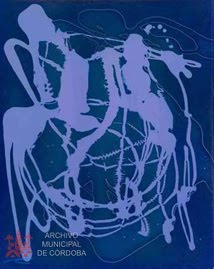The man who made the difference is, of course, Daniel Ellsberg, whose whistleblowing story is the subject of a documentary film released this year, the fortieth anniversary of that leak that changed the course of U.S. and world history. The film of his gripping story —The Most Dangerous Man in America: Daniel Ellsberg and the Pentagon Papers — opens today at New York's Film Forum. It was none other than Henry Kissinger, Secretary of State in the Nixon administration, who called Ellsberg "the most dangerous man in America." What was a perceived as a danger to one of the world's most infamous unindicted war criminals is a man of conscience whose courage will hopefully be emulated in the coming months and years.
Here's the trailer:
trailer: The Most Dangerous Man in America: Daniel Ellsberg and The Pentagon Papers
produced and directed by Judith Ehrlich and Rick Goldsmith
Daniel Ellsberg, his wife of more than forty years, Patricia Ellsberg, and the film's co-director Judith Ehrlich were guests this morning on Democracy Now! to discuss the film with Amy Goodman. At the end of the interview, interspersed with segments of the trailer, Goodman asked Ellsberg what, in light of his experience, he thinks should be done today.
Ellsberg: I look at this film and I watch the bombs falling and all I can see in my mind are the bombs—the same bombs falling over Afghanistan or Vietnamistan, and Iraq right now. And we're really facing at this moment a crisis, a decision that's just like the crisis in this film, which I failed at the time, where the president is doing something that I feel will be a disaster, and I kept my mouth shut about it: the change from 70,000 men in the spring of 65 to an open-ended commitent, starting with another 50,00, which I knew was on the way to hundreds of thousands. I didn't tell about that, and nor did anyone else. There was a lot of dissent in the administration about that, but we were overruled we saluted Clark Clifford, Vice President Humphrey.
 Again we have a vice president who is apparently against the application, another parallel. James Jones, a military man, who can see what I can see, what anyone can see who has memories of Vietnam. There is no success at the end of this tunnel. There's only a statemate, which could persist indefinitely.
Again we have a vice president who is apparently against the application, another parallel. James Jones, a military man, who can see what I can see, what anyone can see who has memories of Vietnam. There is no success at the end of this tunnel. There's only a statemate, which could persist indefinitely.Goodman: Do you think we'll see a new "Dan Ellsberg"?
Ellsberg: We need people to put out, to tell the truth, and to do it not the way I did--not after the escalation, not after the bombs are falling--but right now, right now; and for the congress to hold the hearings that will entertain those people.
Goodman: The film The Most Dangerous Man opens today at the Film Forum, and then it will be in
Santa Monica, which is right across from the Rand Corporation, significantly, on the fortieth anniversary of the leak of the Pentagon Papers.
Ellsberg: I wish it were in D.C. this month We're gonna do everything we can to get it there. Because I think this film actually, by showing that actions by an individual telling the truth at great cost or risk, can make the difference. And that's the critical thing that keeps people's mouths shut: it won't make any difference.
(see link for full transcript)





No comments:
Post a Comment